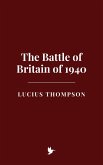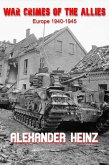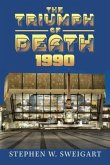This in-depth WWII history examines how the Battle of Britain was shaped by military intelligence on both sides of the conflict. In the summer and fall of 1940, the UK successfully fended off a relentless German attack from the air. While the Battle of Britain was essentially a war of attrition, it was critically influenced at every stage by the gathering, assessment, and reaction to intelligence. In this fascinating study, military historian Norman Ridley examines all aspects of German and British intelligence, from the accuracy of its data to the effectiveness of its deployment. Both the Luftwaffe and the RAF lacked detailed information about each other's war production capacity. While the Luftwaffe did have pre-war aerial surveillance data, it was largely out of date by the time of the battle. Though RAF Fighter Command had a distinct advantage through its radar surveillance systems, the new technology wasn't totally reliable and often difficult to interpret. It also had the benefit of intercepting and decoding Luftwaffe communications. Rather than acting as a "force multiplier", the Luftwaffe's poor intelligence actually acted as a "force diluter", wasting resources in strategically questionable areas. On the other hand, the British had the means, however imperfect, to respond quickly and effectively to each new strategic initiative they faced.
Dieser Download kann aus rechtlichen Gründen nur mit Rechnungsadresse in A, B, BG, CY, CZ, D, DK, EW, E, FIN, F, GR, HR, H, IRL, I, LT, L, LR, M, NL, PL, P, R, S, SLO, SK ausgeliefert werden.









